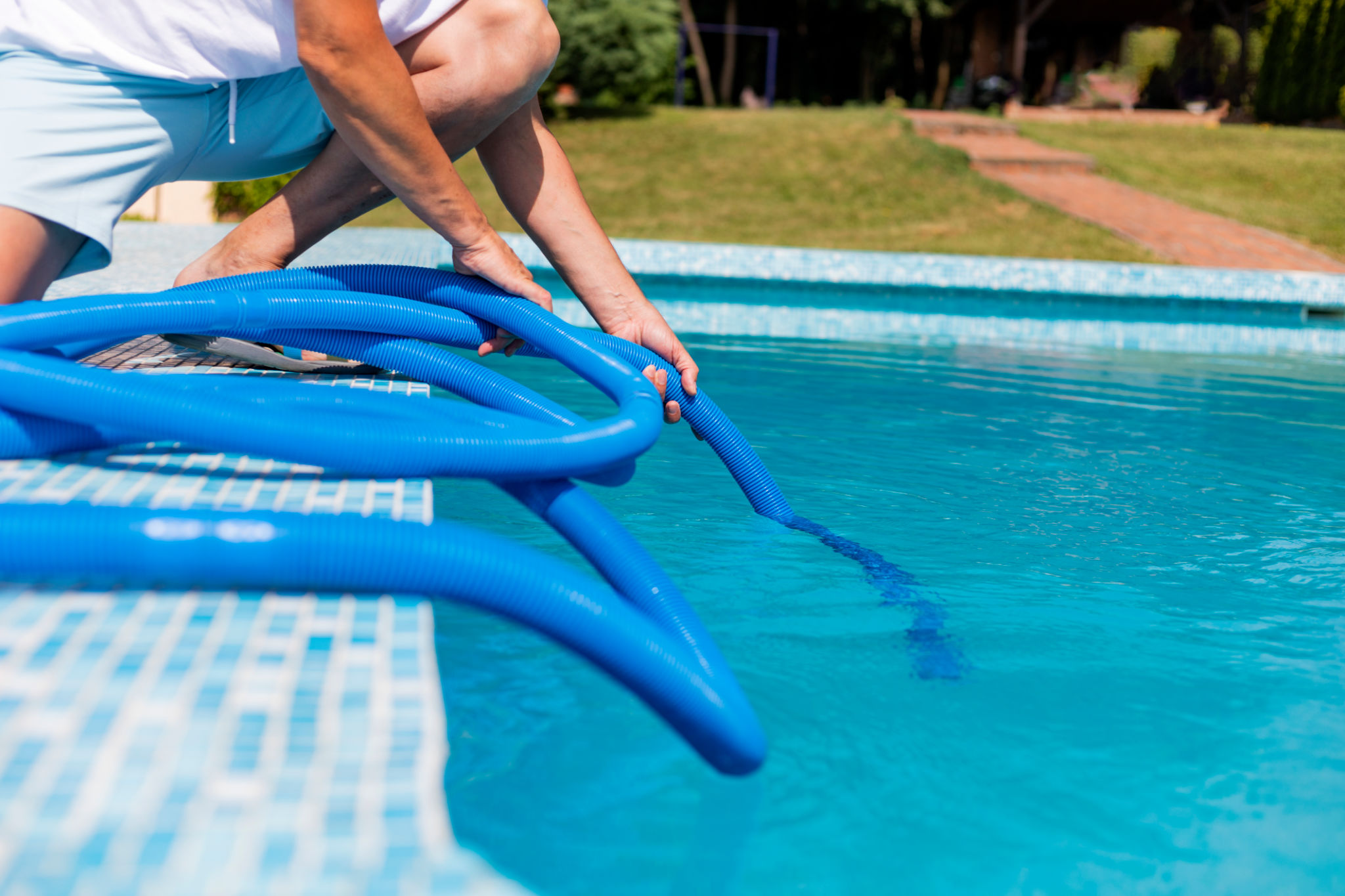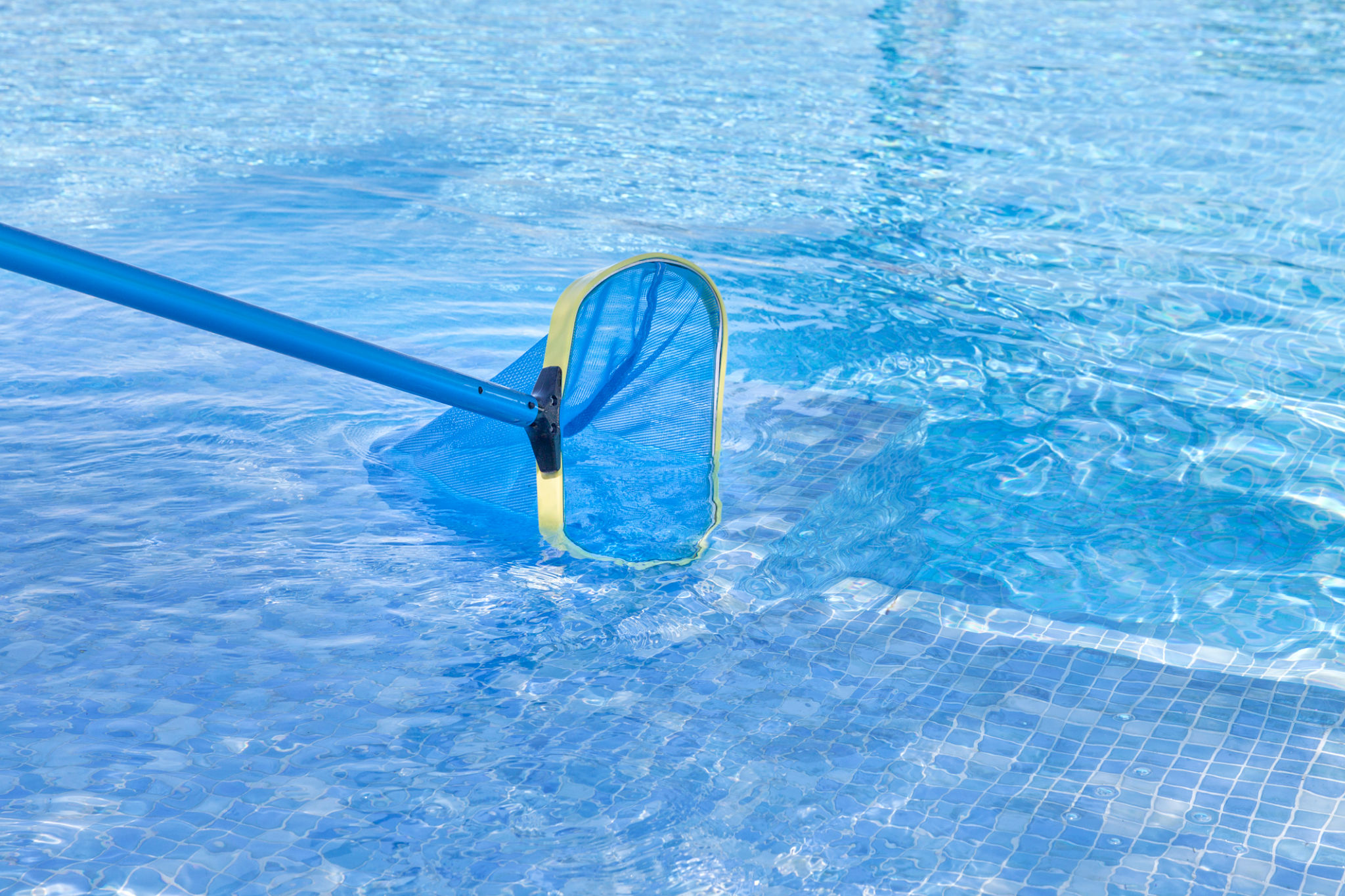DIY Pool Maintenance Tips Between Professional Cleanings
Understanding the Basics of Pool Maintenance
Owning a pool is a fantastic way to enhance your home and enjoy the warm months, but it also requires regular maintenance to keep it safe and clean. While professional services are essential for deep cleaning and inspections, there are several DIY pool maintenance tasks you can perform to ensure your pool remains in top condition between professional visits.
The foundation of pool maintenance lies in understanding the balance of chemicals in the water. This includes regularly testing the water for pH levels, chlorine, and alkalinity. Adjusting these levels as needed will help prevent algae growth and ensure the water is safe for swimming.

Regular Skimming and Cleaning
One of the simplest yet most effective pool maintenance tasks is skimming debris from the water’s surface. Leaves, bugs, and other debris can accumulate quickly, especially if your pool is near trees or bushes. Regular skimming not only keeps your pool looking pristine but also prevents these materials from sinking to the bottom and causing stains or clogs in your filtration system.
In addition to skimming, it's important to brush the walls and floor of your pool to prevent algae buildup and remove any dirt that has adhered to the surfaces. Choose a brush suitable for your pool's material—nylon bristles for vinyl and fiberglass, or stainless steel for concrete pools.

Maintaining Your Pool’s Filtration System
The filtration system is the heart of your pool’s cleaning process. It helps keep the water clear by removing impurities and debris. Regularly check your pool filter and clean it according to the manufacturer's instructions. This may involve backwashing a sand or DE filter or changing cartridges in a cartridge filter system.
Ensure that your pump is running efficiently by checking for proper water flow and listening for unusual noises. Keeping the pump and filter in good working order not only prolongs their lifespan but also ensures your pool stays clean and inviting.
Balancing Water Chemistry
Maintaining proper chemical levels is crucial for a healthy swimming environment. Testing kits are widely available and easy to use, providing you with accurate readings of your pool’s chemical levels. Aim to test the water at least once a week, more frequently during heavy use or after heavy rains.
If you notice cloudy water or algae growth, it may be time to shock your pool. This involves adding a higher dose of chlorine to kill off unwanted bacteria and algae. Be sure to follow all safety guidelines when handling pool chemicals.

Preventing Algae Growth
Algae can be a persistent problem for pool owners, especially in warmer climates or when the water chemistry is unbalanced. Regular brushing, vacuuming, and maintaining proper chlorine levels will help keep algae at bay. Consider using an algaecide as an additional preventive measure.
Keep an eye on shaded areas of your pool where algae are more likely to thrive, and ensure those areas are receiving adequate circulation from your pump system.
Scheduling Professional Inspections
While DIY maintenance goes a long way in keeping your pool clean, professional inspections are essential for ensuring all components function correctly. Schedule these inspections at least once or twice a year to catch any potential issues before they become major problems.
During these visits, professionals can also perform services like deep cleaning, equipment repair, and comprehensive water testing that might be outside the scope of typical DIY maintenance.
By combining regular DIY maintenance with professional cleanings, you can enjoy a sparkling pool all season long with minimal disruptions. With consistent care and attention, your pool will remain a refreshing oasis for family and friends.
